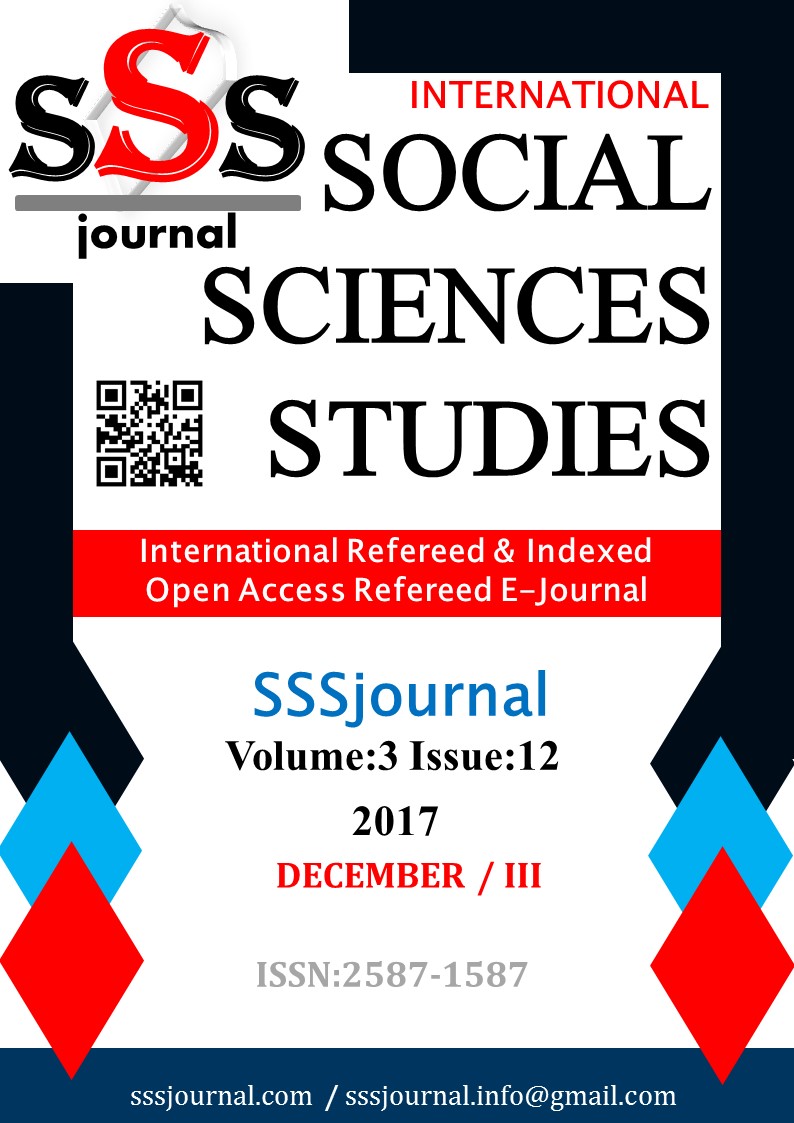Author :
Abstract
Suriye’de yaşanan iç savaş binlerce insanın ölümüne ve milyonlarcasının ise yerinden yurdundan olmasına yol açmıştır. 5-6 Milyon insan başta Türkiye olmak üzere Lübnan ve Ürdün gibi ülkelerde mülteci olmuştur. Bu mültecilerin 3.5 Milyonu Türkiye’ye yönelmiştir. İlk yıllarda savaşın kısa sürede biteceği öngörüldüğünden Türkiye bu insanlara mülteci statüsü yerine hiçbir hukuki anlamı olmayan “misafir” statüsü verilmiştir. Ne var ki savaşın uzun süreceği anlaşılınca bir yasal düzenleme ile Suriyeliler “geçici koruma” kapsamına alınmıştır. Bu onlara, eğitim, sağlık ve emek piyasalarına erişim izini vermektedir. İlk iki haklarını mülteciler hemen kullanırken, emek piyasalarına erişim hakkı 0cak 2016’da çıkarılan çalışma izini yönetmeliğini beklemek zorunda kalmıştır. Ancak verilen çalışma izninin mültecilerin oturma izni aldıkları şehirlerde geçerli olması ve Suriyeli işçi sayısının işyerinde yerli işçilerin % 10’undan fazla olması gibi sınırlamalar içermektedir. Bu nedenle kayıtlı oldukları kentlerde iş bulamayan mültecilerin iş bulmak için büyük şehirlere yönelirken çalışma izninin de anlamı kalmamıştır. Bu kadar çok sayıda mültecinin emek piyasalarına girmesi bir yandan vasıfsız emek arzının yetersiz kaldığı büyük şehirlerde hazır giyim ve tekstil gibi işgücü açığını kapatırken diğer yandan da tarım ve inşaat sektörlerinde çok sayıda yerli işçiyi işinden etmiş, ücretler düşmüş ve çalışma şartları da kötüleşmiştir. Ek olarak çocuk işçiliği ve kayıt dışılık ürkütücü boyutlara ulaşmıştır.
Keywords
Abstract
Syrian Civil war has left thousands dead and millions without homes. Some 6 million have become refugees in Turkey and the neighbouring countries such as Lebanon and Jordan. 3.5 million of them come to Turkey and more and more are still coming. Initially it was reckoned that the war would end very soon, the Syrian people were not given the statute of refugees they were called as “guests” which do not have any legal implication. Nevertheless, after it was realised that the war will last long, then they were included into the coverage of “temporary protection”, which gives them the refugees status. This right provided them whit the right to access to health care, education and labour markets. They were able to use the first two rights immediately while had to wait until 2016 for the access to the labour markets. They were issued work permits, valid only in the cities where they are registered. The employers were allowed to employ Syrian refugees as much as % 10 percent of their local workforce. Failing to find enough jobs in the cities where they were registered most of the refuges sought to move into the big cites. Thus the work permits became meaningless. Such huge influx of refugee into the large cites and cites in the south part of Turkey have had enormous effects on the local labour markets. While providing fresh labour supply to the industries such as textile and garments in the big cites which traditionally suffers from the insufficient unskilled labour supply this influx of refugee displaced many local workers and deteriorated the wages and working conditions in the construction and agriculture industries all over Turkey. Moreover, child labour and informal employment reached extreme levels.
Keywords
- Akgündüz, Y.; Van den Berg, M. & Hassink,W. H. (2015). The Impact of Refugee Crises on Host Labor
- Akgündüz, Y.; Van den Berg, M. & Hassink,W. H. (2015). The Impact of Refugee Crises on Host Labor Markets: The Case of the Syrian Refugee Crisis in Turkey. IZA Discussion Paper No 8841.
- Balkan, Binnur and Tumen, Semih (2016) Immigration and Prices: Quasi-Experimental Evidence from Syrian Refugee in Turkey. TCMB Working Paper No: 16/01.
- BHRRC, (2016), Syrian Refugees in Turkish Garment Supply Chains: An Analysis of Company Action to Address Reports of Serious Exploitation and Abuse”. Briefing Note.
- Ceritoglu, E.; Yunculer, G.; Burcu, H.; Torun, H. & S. Tumen (2015). The Impact of Syrian Refugees onNatives' Labor Market Outcomes in Turkey: Evidence from a Quasi Experimental Design. IZA Discussion Paper No. 9348.
- Çelenk, Tepkiler şiddete dönüşebilir, Posta 26 01.2015.
- Candan M. (2007), Kayıt dışı İstihdam ve Yabancı kaçak istihdam: Toplumuz Üzerindeki Ekonomik ve Sosyal etkileri. İş-Kur Uzmanlık Tezi.
- Çetin, İ. (2016). “ Suriyeli Mültecilerin İşgücüne Katılımları ve Entegrasyon: Adana-Mersin Örneği, Gaziantep University Journal of Social Sciences. Cilt 15, Sayı 4.
- Çetingüleç, M. (2016). “Turkey Granst Syrians rigth to Work, but is it tooo Little , too late? Al-monitor: ThePulse of The Middle East. https://www.al-monitor.com/pulse/ originals/2016/01/turkey-syrian-refugees- granted-right-to-work.html
- Coşan, B. (2013). Savaştan kaçan Suriyeliler, sigortasız olarak tekstil atölyelerinde çalıştırılıyor, 23. 10. 2013 Hürriyet.
- Dünya, 17 Kasım 2017, Fabrikada çalışmak yerine plazada güvenlikçi oluyorlar,
- Erdoğan, M.M. (2014).Türkiye’deki Suriyeliler: Toplumsal Kabul ve Uyum, Hacettepe Üniversitesi, Göç ve Siyaset Araştırmaları Merkezi: Ankara
- EGM, (2015). Yasadışı Göç ve Göçmen Kaçakçılığı http://www.egm.gov.tr/Sayfalar/yasadisi-goc-ve- gocmek-kacakciligi.aspx
- İçduygu A. (2017).“Türkiye’deki Suriyeli Mültecilerin İşgücü Piyasası Entegrasyonu: Mültecilikten Göçmenliğe. Göç Araştırmaları Dergisi Vol. 3. sayı 1.pp. 12-35.
- İçduygu, A. (2016). “Turkey: Labour Market Integration and Social Inclusion of Refugees”, EP, DirectorateGeneral For Internal Policies Policy Department A: Economic and Scientific Policy, IP/A/EMPL/2016-13. Gaziantep Haber, Gaziantep’te Suriyelileri İstemiyoruz. 6 Temmuz 2014
- Haberexpres (14.05.2015). Suriyelilerin 'Amele' Pazarı.
- Karataş, A. 13.Temmuz 2017 “Suriyeli Tarım işçileri En Düşük Ücret ve Ek Kötü Koşullar” https://journo.com.tr/turkiye-tarlalarinda-suriyeli-isciler.
- Kızıl, C. (2016). “Turkey’s Policy on Employment of Syrian Refugees and its Impact on the Turlish labour Markets”, D. Eroğlu, Loen, J.H. ve Sirkeci, I (der), Turkish Migtaion Selected Papers. London: TPL.
- Konya Yenigün, 31 Ağustos 2014; Suriyeli Mültecileri Amale oldu.
- MAZLUMDER, (2013).Türkiye’de Suriyeli Mülteciler: İstanbul Örneği. http://istanbul.mazlumder.org/webimage/suriyeli_multeciler_raporu_2013.pdf
- ORSAM, (2015). Suriyeli Mültecilerin Türkiye’ye Etkileri, Rapor No:195. Ankara.
- Özkan, F. (02.11.2015). Vasıfsız işçi bulamıyoruz Suriyeliler bize ilaç olacak Akşam,
- Toksöz,G.; S. Erdoğdu, & S. Kaşka. (2012). Düzensiz Emek Göçü ve Göçmenlerin İş Gücü Piyasasındaki Durumları, IOM.





